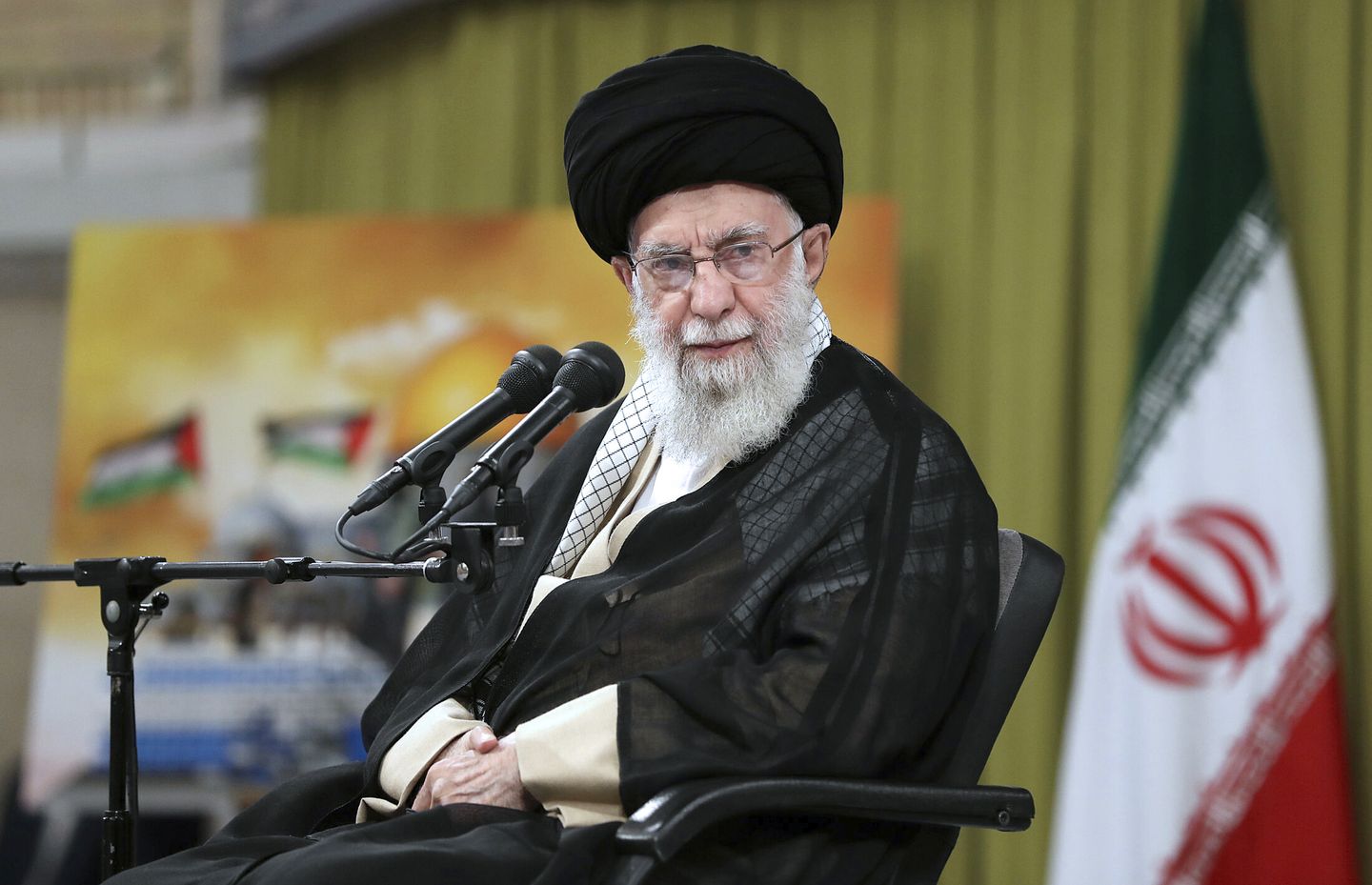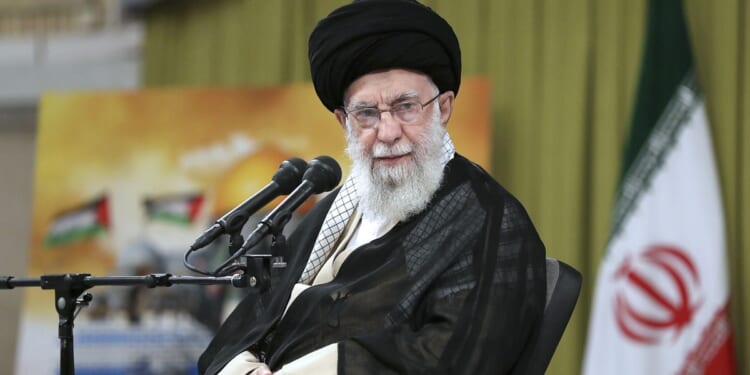
Most Iranians will boycott the country’s March 1 parliamentary elections because their political system is rigged in favor of supreme leader Ayatollah Ali Khamenei and his favored candidates, according to the National Council of Resistance of Iran, the world’s largest exiled Iranian dissident movement.
At a press conference in Washington on Thursday, NCRI officials said that most Iranians have little faith in their nation’s electoral system.
“The people have entirely given up on the ballot box under this current theocracy of the mullahs because it’s a sham,” said Alireza Jafarzadeh, deputy director of the Washington office of NCRI, which also has representatives in several European nations.
“It has no impact on the lives of the Iranian population,” he said. “They are trying to change things.”
More than 15,000 candidates are competing for a four-year term in the Iranian Parliament’s 290-seat chamber, which has been controlled by hardliners for decades. It will be the first election since nationwide protests erupted in 2022 following the death of 22-year-old activist Mahsa Amini. She died while in custody of the country’s morality police after being arrested for allegedly wearing her hijab too loosely.
The elections also come against the backdrop of growing Iran-U.S. tensions and come just months after Hamas, an Iran-backed Palestinian terrorist group, launched an Oct. 7 assault on Israel. That attack has fueled other conflicts across the Middle East, including clashes between the U.S. and Iran-backed groups such as Yemen’s Houthi rebels and the Shiite militia Kata’ib Hezbollah, which the Pentagon says regularly targets American troops in Iraq and Syria.
With Iran-U.S. tensions soaring, hardliners in Iran seem to be consolidating power. The supreme leader, for example, has launched a series of political purges against top Iranian officials such as former President Hassan Rouhani, who also spent five terms in parliament. Mr. Rouhani was Iran‘s president in 2015 when the country signed the Joint Comprehensive Plan of Action, a U.S.-backed, multilateral deal that limited Iran‘s nuclear program in exchange for relief from economic sanctions.
But now, Mr. Rouhani has been denied permission to run in the upcoming election.
“He has been in the top security positions of the regime for over 30 years, yet he’s disqualified,” Mr. Jafarzadeh said, adding that the exclusion of Mr. Rouhani proves that only the the strictest hardliners are accepted in the Mr. Khamenei‘s “mafia.”
As he loses some popular support, Mr. Khamenei is increasingly relying on the Islamic Revolutionary Guard Corps and loyalists inside Iran’s parliament and judiciary, along with thousands of powerful bureaucrats inside his own executive office, known as the Beyt, Mr. Jafarzadeh said.
“If you create dissent among your own circles, it reemphasizes that there is no path to political change. Even the closest allies of the regime are not able to run and get positions,” he said. “So what change are we talking about through the ballot box?”
Mr. Khamenei fears a resurgence of past uprisings in Iran and the growing power of the Iranian resistance movement, his critics say.
“The main fear that Khamenei has is, ‘When is the next (uprising) going to come and how is it going to come?’ They may not survive it,” Mr. Jafarzadeh said. “They’re building a whole system around preventing the resurgence of further uprisings and countering it.”
The Mujahedin-e Khalq, known as MEK, is the largest and most popular resistance group in Iran. More than 100,000 of its members have been killed since 1981 and more than 3,000 have been arrested in the past year alone, the group says.
Mr. Jafarzadeh said the group is expanding faster than Iran can counter it.
To push back on the regime, NCRI argued that Washington and Europe should impose strict sanctions on Tehran and hold it accountable for its rampant domestic human rights violations, along with its support of terrorism and its efforts to acquire a nuclear weapon.
“There are all kinds of things they can do. They just have to have the will,” Mr. Jafarzadeh said of the U.S. and its European allies.
Western leaders also should build relationships with resistance groups in Iran who want to bring down the regime, he said.
“It’s not enough to just put out general statements criticizing human rights violations in Iran. It’s important to explicitly recognize the right of the people to change the regime,” Mr. Jafarzadeh said.












